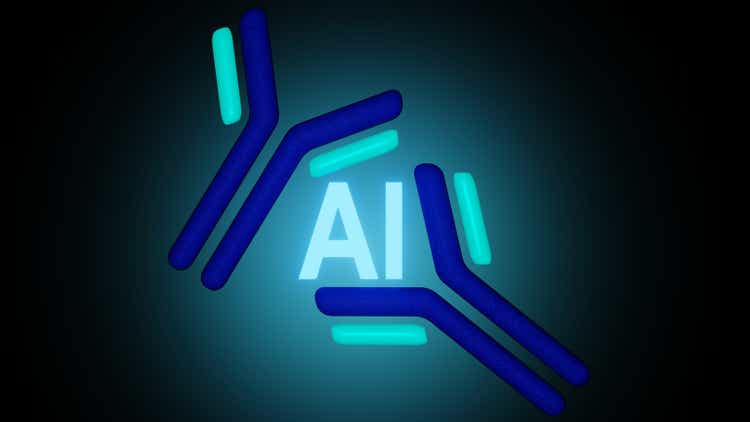
I love Employee/iStock via Getty Images
Cancer immunotherapies are among the most expensive therapies available, but for many patients they simply don’t work well. Artificial intelligence could help.
New findings from a study conducted by GE HealthCare Technologies (NASDAQ:GEHC) and Vanderbilt University Medical Center showed that the use of artificial intelligence can predict patient responses with an accuracy of between 70% and 80%.
The results were recently published in Journal of Clinical Cancer Informatics of Clinical Oncology.
The study used a retrospective analysis of immunotherapy treatment responses of thousands of medical center cancer patients and correlated them based on demographic, genomic, tumor, cellular, proteomic and imaging data.
AI models have been designed to predict the effectiveness of certain immunotherapies, as well as the likelihood of an individual patient developing an adverse reaction.
Cancer immunotherapies can take many forms, including CAR T-cell therapies, checkpoint inhibitors, and monoclonal antibodies. CAR-Ts are the newest – and most promising – but they also have very high prices.
A 2019 study in the journal Blood found that the average total cost of CAR-T treatment (41 days before to 154 days after index CAR-T) for relapsed/refractory (r/r) B-cell non-Hodgkin lymphoma was $618,100.
Using artificial intelligence to predict treatment response could have a serious impact on cancer treatment. By 2050, the number of people with cancer worldwide is expected to grow to more than 35 million, up from 20 million in 2022, according to the World Health Organization’s International Agency for Research on Cancer.
GE HealthCare (GEHC) said it is evaluating plans to commercialize artificial intelligence models as they could be used both in clinical settings and for the development of future treatments.
“Our goal is to collaborate with pharmaceutical companies, researchers and clinicians to optimize and ultimately apply AI models in therapeutic development and clinical practice,” Jan Wolber, Global Product Leader – Digital at the Pharmaceutical Division, said in a statement Diagnostics by GE HealthCare.
The researchers noted that the models could be used for therapies in other areas, such as neurology or cardiology.